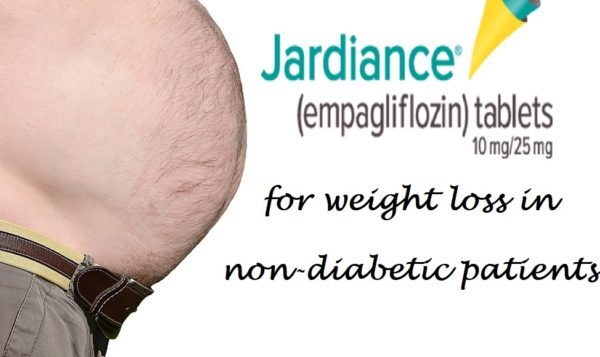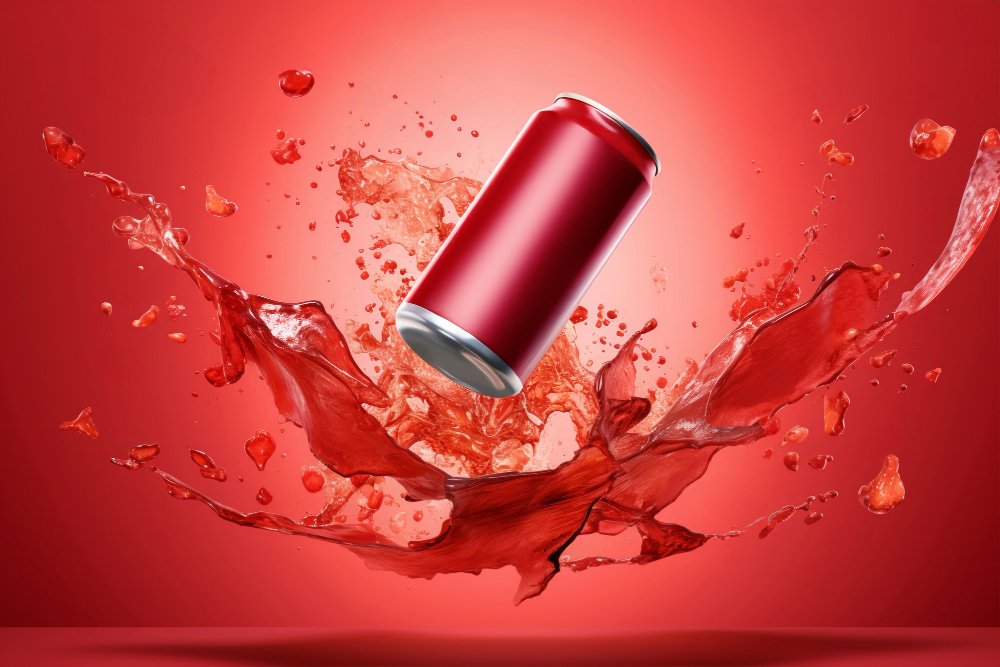Today, I choose the topic " Jardiance for weight loss in non-diabetic patients" because I have never seen such positive results in terms of weight loss compared to drugs used primarily for weight loss. The five drugs approved for weight loss by the AACE and ACE include:
- Xenical (Orlistat)
- Lorcaserin (Belviq)
- Phenteramine/ Topiramate ER (Qsymia)
- Bupropion ER/ Naltrexone ER (Contrave)
- Liraglutide
However, after 6 months to one year of use, these drugs may reduce weight by 5% to 12%. A person weighing 102 Kg will attain a weight of 89 kg after one year (maximum weight reduced by 13 kg).
To attain a BMI (Body mass index) of 23 Kg/m², the upper limit of normal BMI, a person who is 5 feet and 6 inches tall should have a weight not exceeding 63 kg. Even a person who is six feet tall should not be weighing more than 75 Kg to have a normal BMI. Henceforth, I, and most other physicians, do not like to prescribe these costly and toxic medicines for weight loss.
Empagliflozin (Jardiance) is not weight-neutral!
Jardiance (empagliflozin), like Semaglutide, dulaglutide and liraglutide, is not weight-neutral. It causes weight loss by removing the excess sugars from the bloodstream via the renal tract.
When more sugar is lost, fewer calories are available and less of it is available to be stored as fats. Hence, the patient starts losing weight. In patients who may be retaining fluid as in congestive cardiac failure, kidney disease, or liver disease and patients on certain drugs like pioglitazone that may cause water retention, Jardiance is exceptionally helpful.
My experience of using Jardiance (empagliflozin):
I put one of my newly diagnosed diabetic patients on Jardiance (empagliflozin). He had an initial blood sugar of 392 mg/dl and glycated hemoglobin of 11.2%. After 6 weeks, the patient lost 4 kgs of weight and his blood sugars were within the range.
I reduced the dose and after another 6 weeks, I stopped all his medicines (curing diabetes type 2) His blood sugars remained within the range without medicines and he had a total weight loss of 9 kgs from the baseline over three months.
Another female diabetic patient, weighing 92 kg, was prescribed empagliflozin and dulaglutide. She lost 14 kgs over a period of five months. The weight loss was so rapid that I had to stop the drug.
Jardiance for Weight Loss in Non-Diabetic Patients:
Can SGLT2 inhibitors (Empagliflozin, Canagliflozin, and Dapagliflozin) be used in non-diabetics for weight loss?
Will Jardiance and other SGLT 2 Inhibitors be effective in patients without hyperglycemia?
Since data is very limited to answer these questions, let's discuss how SGLT2 inhibitors may help reduce weight and how much weight loss should one expect with the use of these drugs.
Jardiance (empagliflozin) and the other SGLT2 inhibitors inhibit the reabsorption of filtered glucose in the proximal tubules.
Up to 90% of the glucose that is filtered is reabsorbed in the proximal tubules while the remaining 10% is absorbed in the distal tubules.
The kidneys in non-diabetic individuals filter about 180 gms of glucose daily. 90% of 180 gms is reabsorbed in the proximal tubules. Thus about 162 gms of glucose are absorbed in the proximal tubules.
SGLT2 inhibitors inhibit 30 - 50% of the filtered glucose is 50 - 80 gms of glucose is lost in the urine daily.
The total calories lost daily with the use of Jardiance and similar drugs would be 200 - 320 kcal per day.
If a person takes 100 calories extra per day, in one year that accounts for 36500 extra calories. This will cause a 10.4 lbs or 4.72 Kg of weight gain.
Thus, with Jardiance (empagliflozin) and Dapagliflozin, the total calories lost would be 365 x 200 to 365 x 320 which is 73000 kcal to 116800 kcal per year.
As 36500 calories may cause a weight gain of 4.72 Kg, Jardiance use may be associated with a weight loss of 9.4 - 15 kg per year.
Have SGLT 2 inhibitors been tried in non-diabetic patients?
Yes. SGLT2 inhibitors (dapagliflozin and empagliflozin) are being studied in nondiabetic patients with proteinuria and heart failure.
Boehringer Ingelheim and Eli Lilly announced that FDA had granted Fast Track status for empagliflozin (Jardiance), for reduction of the risk of cardiovascular death and hospitalization for heart failure for patients with chronic heart failure.
The EMPEROR trials are studying the effects of Jardiance in patients with cardiac failure with and without diabetes. This is going to broaden the indications of empagliflozin.
Other currently ongoing studies include the Empa-kidney trial and the Dapa-CKD trials. Both these studies have enrolled diabetics and non-diabetic patients. Let's hope that more studies will come up to strengthen the role of these drugs in chronic diseases like heart and kidney diseases that will include non-diabetic patients as well.
Furthermore, studies are also needed to see the role of SGLT 2 inhibitors in metabolic syndrome. Russell L Esterline et al hypothesized that SGLT 2 inhibition restores the normal metabolic circadian rhythm, especially in chronic overeaters and those with metabolic syndrome.
Thus, Jardiance may be used in patients with heart failure, chronic kidney disease, cancer, obesity, severe asthma & chronic obstructive pulmonary disease, Alzheimer’s disease, Parkinson’s disease, and non-alcoholic steatohepatitis, apart from diabetes, heart failure, and kidney disease.
How effective are SGLT 2 inhibitors in reducing blood sugars?
Jardiance (Empagliflozin), Forxiga (Dapagliflozin), and Canagliflozin (Invokana) modestly reduce glycated hemoglobin during the first six months and may not be effective after 6 months of their use.
A study by Bashier A et al titled: "Efficacy and Safety of SGLT2 Inhibitors in Reducing Glycated Hemoglobin and Weight in Emirati Patients With Type 2 Diabetes" showed a reduction of glycated hemoglobin from 8.9% to 8% after the first six months of treatment.
From 6 months to one year, the glycated hemoglobin remained static i.e. from 8% at six months to 8% at one year. The reduction in HbA1C is less than 1% in most studies. Furthermore, these drugs are less effective when the glucose load is less compared to those with high blood sugars.
In conclusion:
Jardiance (empagliflozin), Farxiga (Dapagliflozin), and Invokana (Canagliflozin) are being studied in diabetics and non-diabetics for various conditions.
Almost all the studies have shown a beneficial effect of these drugs in reducing weight. Jardiance is not currently approved for weight loss in non-diabetic individuals but may soon be approved because of its excellent weight-reducing properties.




